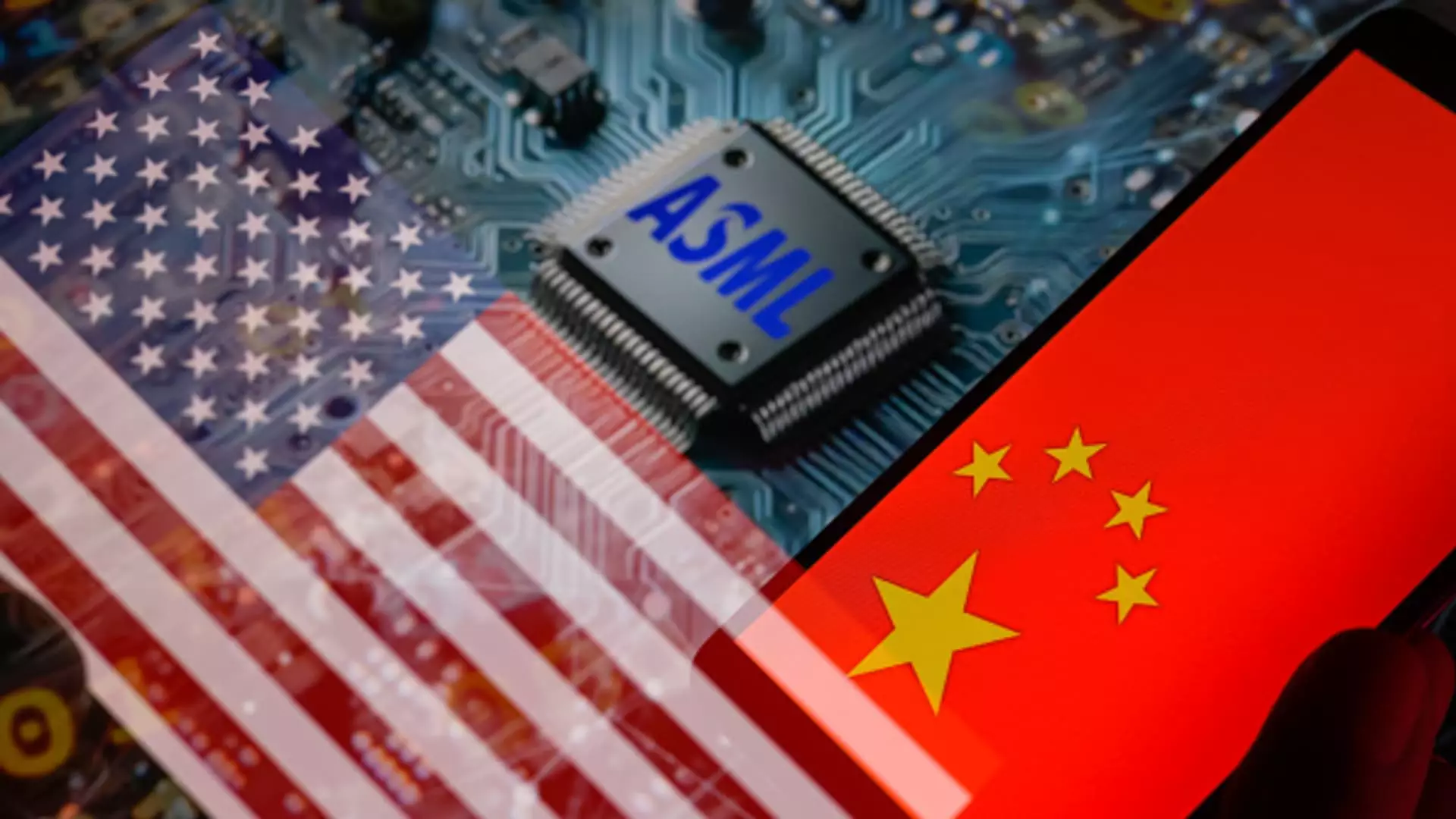The international semiconductor landscape experienced a notable shift last Thursday as key equipment manufacturers saw significant increases in their stock prices, driven by speculation around U.S. sanctions on China’s chip industry. Reports emerged that the Biden Administration is contemplating a modification of its sanctions approach, which would be less stringent compared to the original proposals. Such news propelled ASML in Europe, where its shares rose approximately 3.6%, while Tokyo Electron gained more than 6% in Japan. The evolving nature of these sanctions underscores the complexities of geopolitics intertwined with technology progress, particularly as it pertains to the semiconductor sector.
According to Bloomberg, the U.S. is considering additional measures that would limit the sale of semiconductor manufacturing equipment and AI memory chips to China. Importantly, these new initiatives might avoid the harsher restrictions initially proposed, signaling a nuanced approach to regulation. The U.S. Commerce Department has not officially commented on these developments, leaving the tech industry to grapple with uncertainty. Notably, the industry is closely monitoring which companies may be impacted by newly considered export controls, especially as Washington appears inclined to add fewer suppliers to its Entity List, which restricts sales to specific Chinese technology players.
An intriguing aspect of the recent reports is the decision not to include ChangXin Memory Technologies in the entity restrictions. This company, a formidable competitor to established leaders like SK Hynix and Samsung, plays a crucial role in the memory chip market. Analysts at Jefferies speculate that this exclusion could result in ASML experiencing a less pronounced revenue decline than initially anticipated. With projections suggesting ASML might see a 30% decrease in revenue from China next year, the omission of ChangXin presents a potential silver lining, allowing for a more stable performance in the Chinese market.
ASML finds itself at the center of the intensifying rivalry between the U.S. and China over semiconductor dominance. The Dutch company is pivotal due to its production of advanced lithography machines, essential for chip manufacturing. Current U.S. export controls have already halted the shipment of these sophisticated tools to China, and with the U.S. and Dutch governments tightening regulations, even ASML’s less advanced models face hurdles for export. This situation complicates the broader supply chain and raises concerns for chip manufacturers, particularly those in China, including Semiconductor Manufacturing International Corporation (SMIC) and others.
The implications of U.S. regulations extend beyond ASML and individual firms; they signal a broader strategic recalibration within the global semiconductor supply chain. Any potential restrictions affecting demand or targeting semiconductor manufacturers will likely resonate throughout the industry, impacting various stakeholders including suppliers and customers alike. For international equipment makers, the current scenario also presents opportunities as firms not under scrutiny may see increased demand. As the semiconductor battle unfolds, companies must stay vigilant and adapt to the ever-changing regulatory environment to maintain their competitive edge and market stability.

